Gas Car Fires Far More Common Than Electric Car Fires
CleanTechnica EVs
JANUARY 16, 2022
The argument that there are more electric car fires than gasoline car fires is silly, yet many people believe this is the case.
This site uses cookies to improve your experience. By viewing our content, you are accepting the use of cookies. To help us insure we adhere to various privacy regulations, please select your country/region of residence. If you do not select a country we will assume you are from the United States. View our privacy policy and terms of use.
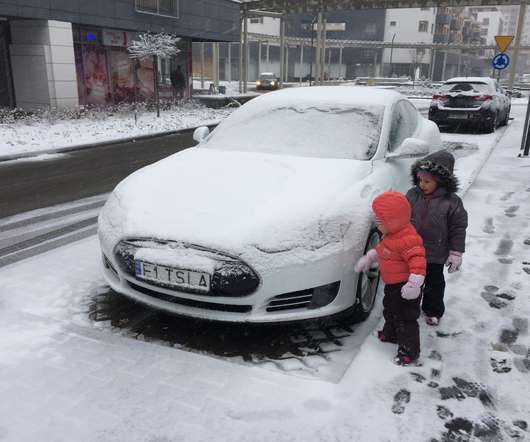
CleanTechnica EVs
JANUARY 16, 2022
The argument that there are more electric car fires than gasoline car fires is silly, yet many people believe this is the case.

Green Car Congress
JUNE 8, 2023
The levels of these non-fuel-derived gases will likely remain unchanged, even as more drivers transition from gas-powered to electric vehicles. These emissions are independent of the vehicle energy/propulsion system and therefore applicable to all road vehicle types including those with battery-electric powertrains. Cliff et al.

Green Car Congress
AUGUST 9, 2021
They used statistical and data analysis methods including sparse regression and neural networks to compare the behavior of these parameters temporally and between the two fuel types. Among their findings: Although differences in the performance metrics were statistically significant, the magnitude of these differences were minimal.

Get Electric Vehicle
JUNE 5, 2023
Which are the alternative fuels for cars that could replace gasoline in vehicle? Let’s see a quick statistic. It is a liquid alcohol fuel produced from a variety of feedstocks, including natural gas, coal, biomass, or even carbon dioxide. FFVs are designed to run on blends of methanol and gasoline in different ratios.
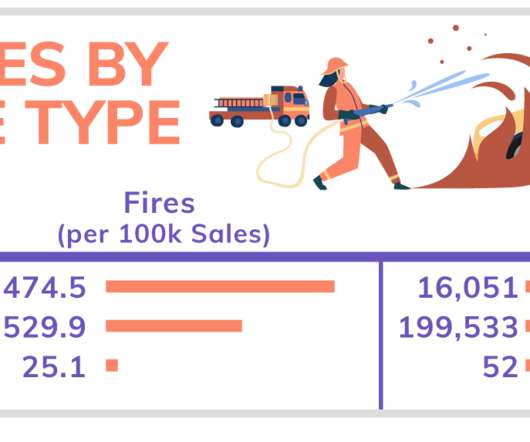
Plug in America
JANUARY 13, 2022
While fires in electric vehicles (EVs) have made headlines in recent years, data from the U.S. government and analyzed by AutoinsuranceEZ point out that there are far more fires in gasoline and traditional hybrid vehicles, even when accounting for the fact that there are more gasoline and hybrid vehicles on the road.

Green Car Congress
DECEMBER 18, 2011
Gasoline section shows results for fuel derived from both conventional oil and oil sands. However, the range in values for shale and conventional gas overlap, so there is a statistical uncertainty whether shale gas emissions are actually lower than those of conventional natural gas. Credit: ACS, Burnham et al.

Green Car Congress
JUNE 13, 2012
seen in 2010, according to the newly released BP Statistical Review of World Energy, 2012. Oil demand grew by less than 1%—the slowest rate amongst fossil fuels—while gas grew by 2.2%, and coal was the only fossil fuel with above average annual consumption growth at 5.4% more as natural gas was diverted to Asia.

Green Car Congress
OCTOBER 9, 2019
We are certainly in revolutionary times, but it is clear that power generation sources will not become fully renewable and transport will not become fully electric for several decades, if ever. A transition from the gasoline or diesel ICE to a full gasoline/diesel hybrid can significantly reduce emissions. Gas exchange.

Green Car Congress
JULY 9, 2015
While alternative powertrains still represent a small percentage of market share compared to gasoline engines, the report noted, clean diesels saw a 10% increase in 2014 sales over 2013 sales, while hybrids saw a 10% decrease, pure electrics saw a 20% increase and compressed natural gas saw a 33% decrease. Belzowski 2015.

Green Car Congress
JULY 9, 2020
Replacing a gasoline-powered ride-hailing vehicle with an electric vehicle can deliver three times the carbon benefits of a personally owned electric vehicle, according to a study by a University of California, Davis, researcher of Uber and Lyft data. The paper is published in the journal Nature Energy. Nat Energy (2020).

Green Car Congress
JULY 12, 2018
The California Air Resources Board (CARB) announced that greenhouse gas emissions in California in 2016 fell below 1990 levels for the first time since emissions peaked in 2004—a reduction roughly equivalent to taking 12 million cars off the road or saving 6 billion gallons of gasoline a year.
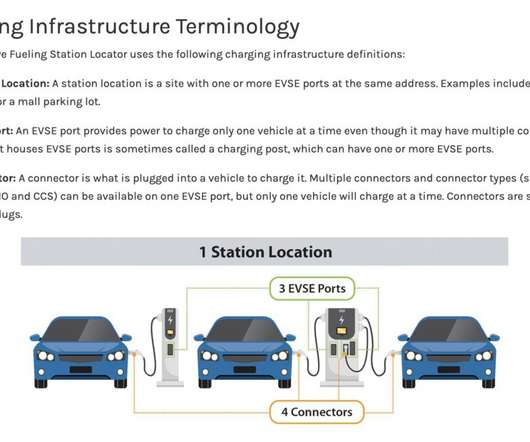
EV Adoption
MAY 15, 2022
If we didn’t have enough hurdles to electric vehicle adoption in the US, one of the challenges that drives me absolutely bonkers is the confusing and inconsistent use of charging terminology. To scale up EV adoption we need to increase consumer awareness and understanding of the “electric refueling” process. But nobody else cares. .

Baua Electric
JULY 26, 2023
A January presentation from the Area of Power Warehouse and Electrical Transportation on the Idaho Nationwide Laboratory notes that automakers and insurance coverage corporations may face warranty- and liability-related monetary losses, and losses from damaging crowd belief of electrical automobiles. Crashes occur.

Clean Fleet Report
MAY 9, 2024
Prospects and Challenges in 2024 Combining the environmental benefits of electric vehicles (EVs) with the long-range and rapid refueling of traditional gasoline vehicles, hydrogen fuel cell electric vehicles (FCEVs) are becoming a compelling option for eco-minded car owners.
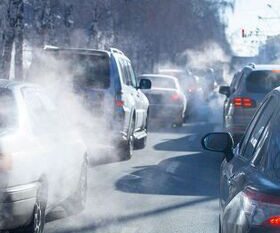
The Truth About Cars
MARCH 21, 2024
But as the Times points out, the government is NOT forcing the fleet to become all electric: The E.P.A. It does not mandate the sales of electric vehicles, and gas-powered cars and trucks could still be sold. The future is electric,” he said. regulation is not a ban.

EV Connect
OCTOBER 9, 2023
Industry experts predict that electric vehicles (EV) will account for 40% of car sales by 2030. Yet for all the optimism around the electric vehicle adoption rate, certain human, structural and environmental factors still dictate the pace. Of the 289 million cars registered on US roads, barely 2 million are electric.
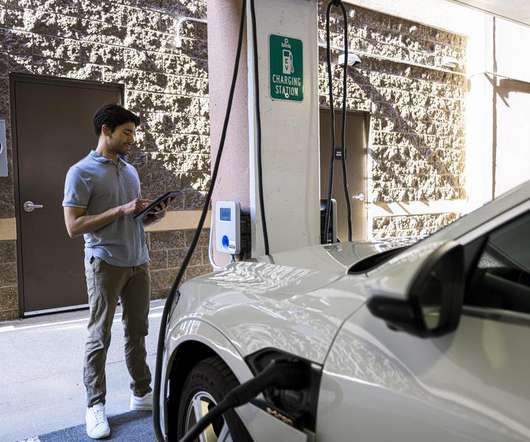
Blink Charging
FEBRUARY 2, 2023
For the time being, some electric vehicles (EVs) are more expensive to buy than their internal combustion engine (ICE) counterparts. Lower fuel costs Aside from having zero tailpipe emissions, the most obvious advantage of driving an EV is the ability to fuel it without having to stop at a gas station. cents per kilowatt hour (kWh).

Green Car Congress
MAY 5, 2010
The Net-Zero Neighborhood is based on local generation using renewables; distributed energy storage in proportion to the population; electric transportation as an integral part of energy storage; energy becoming a consumer commodity that is bought and sold in a local marketplace; and a new jobs base in the form of local energy service providers.

Green Car Congress
MAY 3, 2010
At the ceremonial launching of Germany’s “National Electric Mobility Platform” (NEMP) in Berlin, Volkswagen presented the Golf blue-e-motion electric vehicle concept to German Chancellor Dr. Angela Merkel. The electricity for driving the electric motor is stored in a 26.5 kWh lithium-ion battery pack. On average, 45.8%

Charged EVs
MAY 11, 2022
The 2022 Ford F-150 Lightning pickup truck may be the first real mass-market electric vehicle sold in the US. Ford rolled out a full team of managers and executives who’d created its first electric pickup, but the truck itself was the focus for dozens of reporters, analysts and reviewers. The F-150 Lightning is good.

Green Car Congress
DECEMBER 9, 2014
Technical topics for this FOA—which span the range of DOE interests from fossil to nuclear to renewable and low-carbon energies—include two hydrogen- and fuel-cell-related topics: fuel cell-battery electric hybrid trucks and in-line quality control devices for polymer electrolyte membrane (PEM) fuel cells.
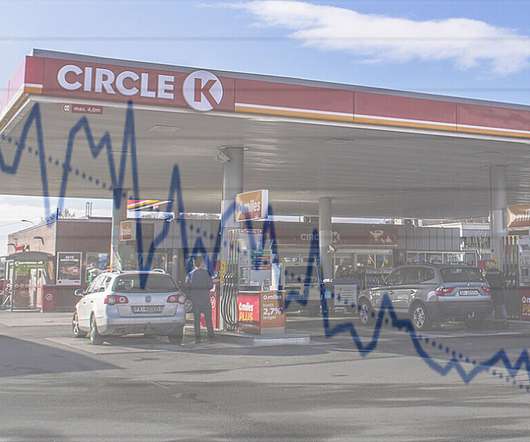
EV Info
SEPTEMBER 24, 2021
Norway has offered strong incentives for motorists to switch to Electric Vehicles with strong tax incentives for electric vehicles. ICE vehicles are subject to a significant tax, and electric vehicles are exempt from that tax. As a result, you can get a much better EV, at any price, compared to price-competitive gas cars.

Green Car Congress
AUGUST 7, 2013
This statistic increases to two-thirds of all new registrations if the data are restricted to passenger cars, according to Bosch. A recent example is the Chevrolet Cruze, for which Bosch supplies the diesel fuel injection system along with the exhaust-gas treatment system, engine control system, ceramic spark plugs, and sensors.
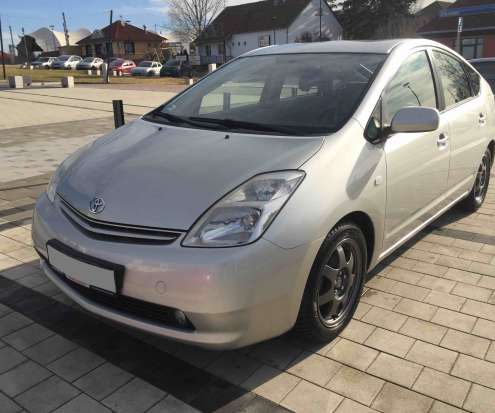
Green Car Congress
FEBRUARY 14, 2020
On the way there, I made a pit stop at a gas station to buy a bottle of champagne as a gift, hoping to start out a conversation with a stranger on the right foot. Having enough electric charge to last a 5-15 minute in silence in a traffic jam. During reversing, the Prius is powered only by the electric motor.
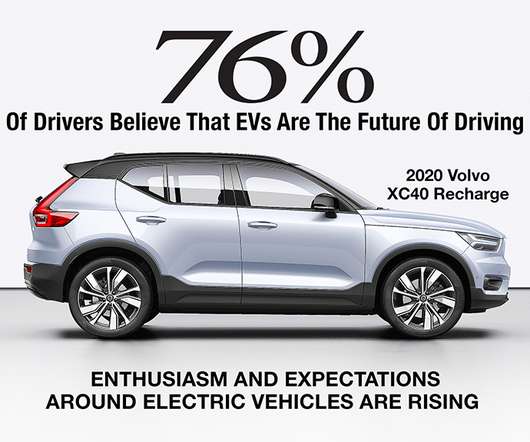
Current EV
DECEMBER 22, 2019
This edition of Volvo Reports investigates the state of electric vehicles in America and the public’s changing perspective on them. We encourage you to use these statistics freely, properly sourcing Volvo Car USA/The Harris Poll. We encourage you to use these statistics freely, properly sourcing Volvo Car USA/The Harris Poll.

Green Car Congress
JUNE 25, 2009
liter gasoline unit combining turbocharging, direct fuel injection and VALVETRONIC fully-variable valve management; a new 3.0-liter liter gasoline unit combining turbocharging, direct fuel injection and VALVETRONIC fully-variable valve management; a new 3.0-liter Liter Straight-Six Gasoline Engine with TwinPower Turbo.

Green Car Congress
NOVEMBER 16, 2015
Magnetocaloric materials have great potential to lower the energy consumption and carbon footprint of technologies used in building cooling, refrigeration, and gas liquefaction. Electric drive vehicle batteries. SiC MOSFETs for electric drive vehicle power electronics. Reciprocating internal combustion (e.g. are desired.

Green Car Congress
AUGUST 30, 2009
The Cadillac Converj extended-range electric vehicle Concept uses the Voltec platform. GM says it is committed to establishing a harmonized national program to improve fuel economy and lower greenhouse gas emissions. mpg in 2016, GM’s short term answer is to get greater mileage out of existing gasoline engine technologies.

Green Car Congress
NOVEMBER 2, 2015
Although the EPA has not as of this writing released the final fuel economy numbers for the US A3 e-tron, Filip Brabec, Director, Product Management, Audi of America, said that the figures will be around 83 to 86 MPGe combined (depending on the equipment level), with 35 to 39 mpg gasoline only and 16-17 miles of EV range. The drive unit.

Green Car Congress
DECEMBER 3, 2013
As the greenhouse gas impacts (costs or benefits) are much smaller than the health benefits, the conversion of petroleum vehicles to CNG can be justified on the basis of local air pollution benefits alone, they concluded. CNG vehicles can have large reductions in CO, NO x and particulates compared to similar gasoline or diesel vehicles.

Green Car Congress
NOVEMBER 1, 2012
Volkswagen is holding media drive events this week for the sporty new 2013 Jetta Turbo Hybrid ( earlier post ), which features the second version of a Volkswagen gasoline-electric hybrid drive system: a 1.4L Volkswagen’s first gasoline-electric hybrid system—that for the Touareg Hybrid—combines a 3.3-liter

Green Car Congress
NOVEMBER 17, 2015
TDI quattro plug-in hybrid ( earlier post ); the Audi A7 h-tron quattro fuel cell vehicle ( earlier post ); the Audi e-tron quattro concept battery-electric SUV ( earlier post ); the Audi TT clubsport turbo concept ( earlier post ); the Audi RS 5 TDI competition concept ( earlier post ); and the Audi R18 e-tron quattro ( earlier post ).

Green Car Congress
MARCH 15, 2010
An advanced biofuel has a carbon footprint that is 50% or less of conventional gasoline and OBE plans to start the certification process by Q4 2010. EPA accepted this logic and instead decided to focus on regional and national statistics and trends to make sure virgin land wasn’t being converted to supply biofuel facilities.

Green Car Congress
JULY 17, 2015
The PHEV (Plug-in Hybrid Electric Vehicle), a subset of the electric car, combines a primary electric motor with a much smaller back-up engine fueled with a hydrocarbon/biofuel mix. (In In this paper PHEV refers solely to the long-range PHEV of 60 miles (100 km) electric-only range.) It is much more than that.

Green Car Congress
FEBRUARY 4, 2015
In their study, published in the ACS journal Environmental Science & Technology they found that—compared to gasoline—the GHG savings from miscanthus-based ethanol ranged between 130% and 156% whereas that from switchgrass ranged between 97% and 135%. This difference was not statistically significant at any of the three locations.

Green Car Congress
NOVEMBER 16, 2010
Consumer interest in electric vehicles. However, the flip side of the survey was that about 44% of respondents stated that they would be “extremely” or “very” interested in purchasing a PEV with a driving range of 40 to 100 miles and an electricity cost equivalent of $0.75 Source: Pike Research. Click to enlarge. per gallon. .
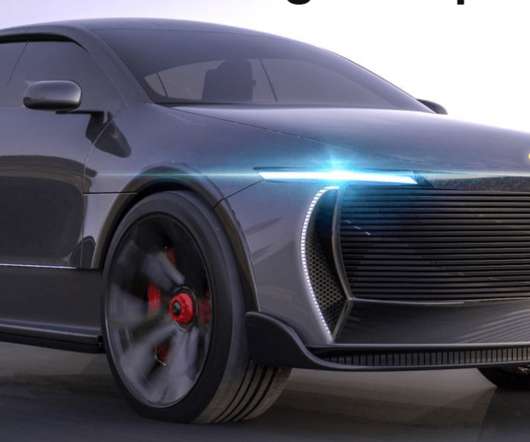
Get Electric Vehicle
APRIL 17, 2021
We know that most carmakers are now moving to EVs and strategizing their future goals based on it, indicating that the global boom in electric vehicles is now a reality. California-based start-up Humble Motors has set out to resolve the issue by charging their cars with solar electricity. ” Dima Steesy. ” Dima Steesy.

Charged EVs
SEPTEMBER 27, 2021
The plug-in hybrid version of the Jeep Wrangler offers useful all-electric range and great electric torque—if drivers plug it in. The accelerating pace of electric vehicle launches has brought us to this: The first Jeep in the US to get a plug-in hybrid version is the legendary Wrangler. The two couldn’t be more different.

Green Car Congress
APRIL 2, 2015
liter gasoline automatic; RWD, 300PS (296 hp, 221 kW) 3.0-liter liter gasoline automatic. The new XF offers a choice of four- and six-cylinder Euro 6 diesel and gasoline engines and transmissions ranging from the 104g CO 2 /km 2.0-liter The powertrain range will consist of: 163PS (161 hp, 120 kW) and 180PS (178 hp, 132 kW) 2.0-liter

Green Car Congress
JULY 6, 2010
gasoline and Diesel fuel), alcohol-based liquid fuels (e.g., compressed natural gas). A rechargeable energy storage system (RESS) that is recharged by the on-board hybrid propulsion system, an external electric energy source, or both. Tags: Electric (Battery) Fuel Efficiency Hybrids Plug-ins. Earlier post.) Mike Duoba.

Green Car Congress
JULY 14, 2015
In terms of the brand, the Passat GTE is a basic building block in Volkswagen’s electric motoring strategy. Together with the plug-in hybrids from Audi (A3 e-tron, Q7 e-tron and R8 e-tron) and Porsche (Cayenne S E-Hybrid and Panamera S E- Hybrid), Volkswagen AG now has ten models in its portfolio driven wholly or partially on electric power.

EV Adoption
JUNE 12, 2022
Statistics gathered by the website GarageLiving.com provide additional data points: Of 1,500 North American respondents to a Garage Living poll, 20% said they were unable to park in their garage. They include Urban Electric , Trojan Energy , and Rolec. Image Source: Urban Electric. Image Source: Volvo USA.
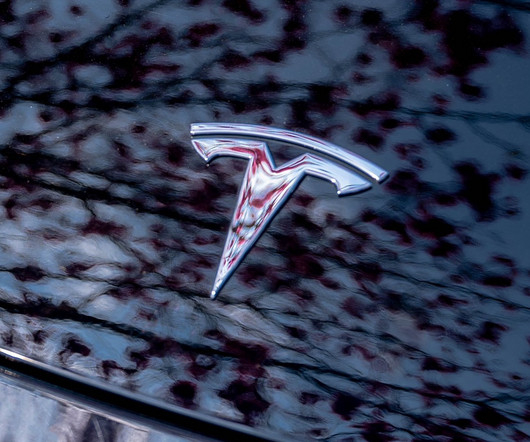
Teslarati
APRIL 24, 2024
We believe this is not the right strategy, and electric vehicles will ultimately dominate the market. And we’re really headed for an electric vehicle, and an autonomous future. Without gas. Despite these challenges, the Tesla team did a great job executing in a tough environment. So these approvals are happening rapidly.
Expert insights. Personalized for you.
We have resent the email to
Are you sure you want to cancel your subscriptions?


Let's personalize your content